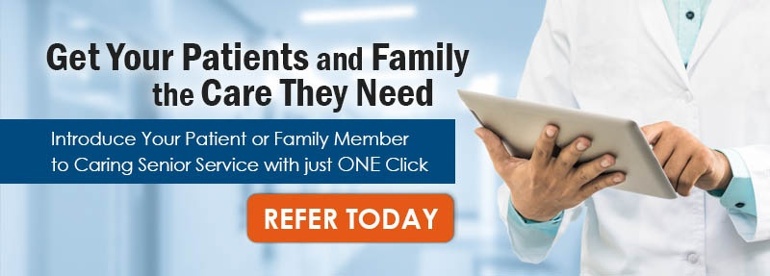As seniors age, natural changes in the body, heart, and blood vessels create an increased risk for cardiovascular problems such as heart attacks and strokes. In fact, out of the nearly half of Americans are diagnosed with heart disease, and many of those individuals are 60 years of age or older. But with proper care and preventative measures, seniors can help decrease the risk of experiencing a heart attack. Here are just a few ways seniors can take control of their health and prevent future heart attacks.
1. Eat a Heart-Healthy Diet
Your diet can have a tremendous effect on not only your heart but your overall well-being as well. Foods high in sodium and fat can increase cholesterol, resulting in clogged arteries, a lack of blood flow, and an increased risk of heart attack. To help avoid heart attacks and other cardiovascular complications, it's more important than ever for seniors to eat a diet that promotes heart heart.
Eliminating fried and fatty foods, as well as processed foods, can help decrease the risk of cardiovascular issues, especially in seniors. Seniors should focus on creating plates that consist mostly of colorful fruits and vegetables that are both low in calories and high in nutritional value. In addition, adding plenty of foods rich with protein and Omega-3 fatty acids to a senior's diet, such as nuts and fish, can help raise good cholesterol and prevent heart attacks.
2. Eliminate Unhealthy Lifestyle Behaviors
Engaging in unhealthy lifestyle habits and behaviors are one of the leading causes of a vast majority of health problems. Smoking tobacco, for example, is one of the leading causes of preventable deaths. Smoking restricts blood and oxygen flow, as well as damages a person's arterial walls. This habit can force the heart to work harder in order to function properly and increase a person's risk of a heart attack.
Staying away from smoking tobacco, as well as consuming alcohol, can significantly lower a person's risk of not just experiencing a heart attack, but also stroke, cancer, and other health complications as well. Alcohol can not only raise your blood pressure but also add calories into your diet that cause weight gain and other issues that can affect the health of your heart. This can be especially true in seniors, whose bodies are less able to digest and dispose-of alcohol properly.
3. Stay Active and Keep Moving
Seniors may not be able to be as physically active as they once were, but exercise and mobility are just as important as they ever were. The less you move, the more stagnant your blood and oxygen becomes- moving slower and slower through the body. Staying active can help promote good circulation, lower blood pressure, and decrease the risk of blood clots, heart attacks, and other cardiovascular problems. Even seniors with limited mobility should find ways to be active for at least 30 minutes, each day. A senior's healthcare team can help determine appropriate activities that would be suitable and effective.
Staying active can also help seniors control weight; another leading factor in cardiovascular complications. People who are overweight or obese can experience not only high blood pressure and an increased risk of diabetes, but also problems with mobility, circulation, arterial function, and more.
4. Stay On Top of Checkups and Medical Conditions
Managing your health is always important, but it's more important than ever to stay on top of your health as a senior. Going to regular checkups, discussing any and all symptoms with the doctor, and staying on top of current issues is one of the best ways to prevent a heart attack. Your medical team is trained to look out for factors and symptoms that put seniors at risk for health problems, and the expertise they hold can alert seniors to possible problems before they become dangerous.
For seniors with medical conditions, taking medications, and/or receiving medical care, it is fundamental that these are managed properly. Managing conditions like high blood pressure, high cholesterol, and diabetes can help decrease your risk of having heart problems. It is important to follow your medical team's advice for treatment, as well as medications.
5. Find Ways to Minimize Stress
Anxiety and stress have been scientifically linked to not just mental health, but heart health as well. Extreme stress and those who are unable to manage stress properly are more likely to experience a heart attack than those who lead calmer, less-stressful lives. When a person feels stressed, the body's blood pressure is raised in response. And in seniors, this heightened blood pressure can be hard to control. Unhealthy coping mechanisms like overeating, drinking, or smoking can also raise blood pressure, and severe moments of stress can trigger, or bring about, a heart attack.
It's essential for all people to find ways to deal with stress. For seniors, this becomes even more important. Ideas for managing your stress include listening to music, reading, exercise, yoga and/or meditation, and speaking to a friend or therapist.
6. Understand Heart Attack Risk Factors and Symptoms
Understanding the risk factors associated with heart attacks can help seniors prepare and take control of their own health. People over the age of 65 are much more likely to experience problems with the heart. This can be attributed to factors associated with age, like decreased mobility, changes in blood vessels, and more. Other important risk factors include:
- Being overweight or obese
- Smoking and/or consuming alcohol
- Having high blood pressure and/or high cholesterol
- Having diabetes
- A family history of cardiovascular complications
Being able to recognize the signs and symptoms associated with heart-related emergencies can help prevent a disaster. Seniors who experience any changes in breathing, heart rate, etc. should discuss these symptoms immediately with their medical team. The warning signs of a heart attack, however, should never be ignored. Seniors should seek immediate medical attention when experiencing any of the following heart attack symptoms:
- An extreme or crushing pain/pressure in the chest, upper body, neck, and/or arms
- Cold sweats
- Lightheadedness or fainting
- Shortness of breath or inability to breathe
- Nausea
While seniors may be at an increased risk for cardiovascular problems, with the proper prevention, your senior loved one can live a long, heart-healthy life. For more on staying healthy and providing your senior loved one with the care they deserve, contact a Caring team near you today.


